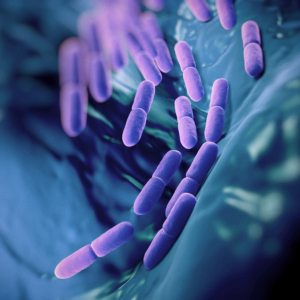Probiotics and the skin
Probiotics are live microorganisms administered for their beneficial effects. WHO (World Health Organization) defines them as live microorganisms that “when administered in adequate amounts, confer to a health benefit on the host”. Lactobacillus and Bifidobacterium are the most commonly used species. Probiotics are mainly used for gastrointestinal diseases however, some research suggests they could be beneficial to some skin conditions such as atopic dermatitis, acne and wound healing.
As far as healthy skin goes, few studies were done on the matter, it does however, suggest that probiotics have beneficial effects on skin’s hydration and elasticity. Some research has shown the role of probiotics in prevention and improvement in the symptoms of atopic dermatitis in children. In one study, a combination of probiotics was given to children suffering from atopic dermatitis in which their symptoms were alleviated by 56%. In addition, another study was done where pregnant women were given probiotics four weeks before delivery and 6 months after delivery showed a noticeable reduction in the risk of developing atopic dermatitis in the first few years of life. A small number of studies were done on the role of probiotics in the prevention of acne, in one study, the side effects of minocycline were alleviated with the administration of probiotics while still maintaining its potency. Furthermore, Probiotics and Minocycline both demonstrated a synergistic anti-inflammatory effect against acne vulgaris. Probiotics could also influence wound healing; a study was done where burn wounds were given a type of yeast called Saccharomyces cerevisiae and the wound exhibited an improvement in the healing process. In addition, there was an increase in the levels of collagen and TGF beta 1.
In conclusion, probiotics could potentially have positive results on normal skin, however, the use of probiotics as means of prevention and/or treatment of some skin conditions requires further studies as the exact mechanism to how they exhibit their effects is still not fully understood.


Leave a Reply
Want to join the discussion?Feel free to contribute!